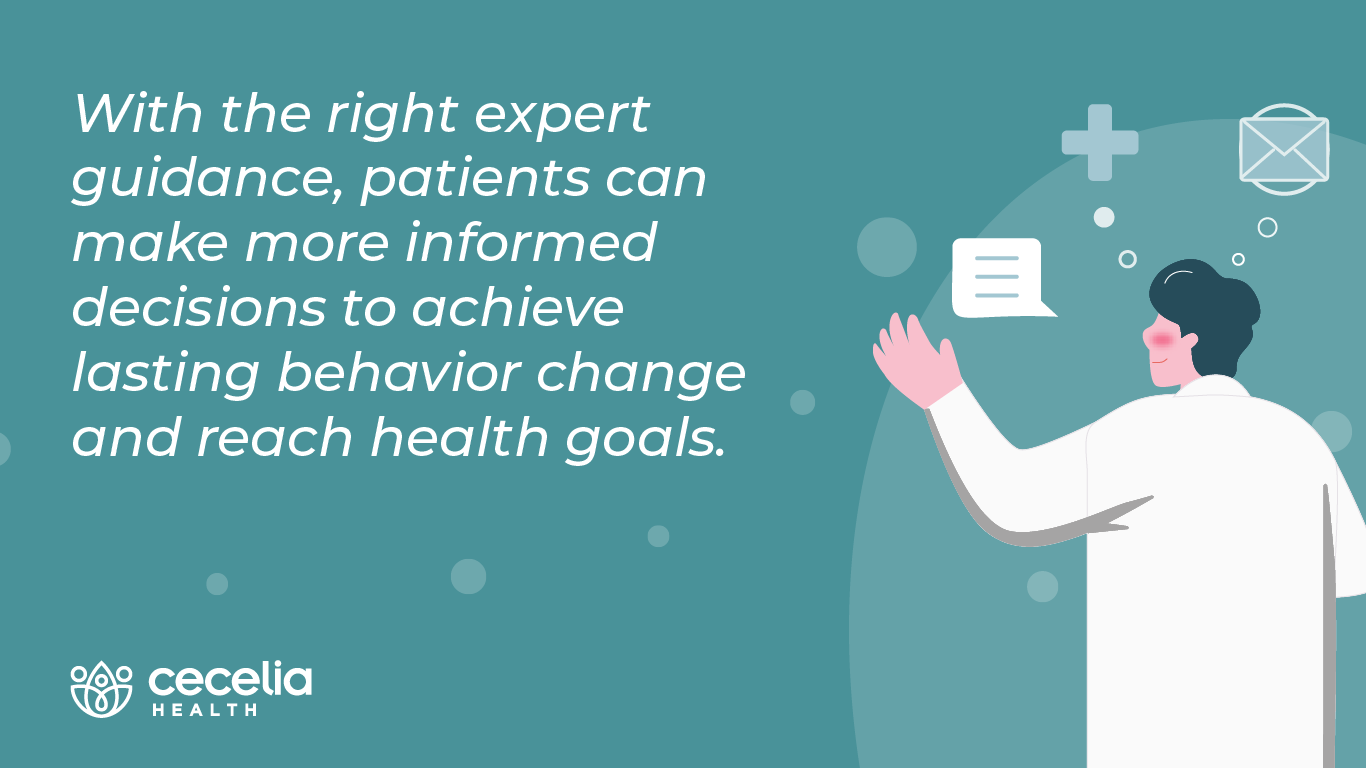Patient experience and, ultimately, health outcomes are heavily influenced by the caliber of support that patients receive. From call agents to coaches to highly qualified clinicians, patients can encounter a range of expertise when seeking help to manage chronic conditions while navigating a confusing and disparate healthcare system.
An expert clinical navigator as part of a patient’s care team—including registered nurses (RNs), registered dietitians (RDs), registered respiratory therapists (RRTs), Certified Diabetes Care & Education Specialists (CDCES), and other specialized clinicians—advances a more comprehensive, encouraging, and improved patient experience. The inherent nature of these highly trained and caring individuals makes each encounter more personalized, driving exceptional engagement.
Whether working with disease management initiatives or patient support programs, here are 10 factors for more effective patient support and an enhanced patient experience through clinical navigation:
- Build trust for transparency and openness: Building trust and rapport with patients is a critical precursor to uncovering barriers unique to each individual. Establishing durable relationships starts with the first conversation and is key to sustained engagement.
- Strengthen relationships with providers: When patients are better prepared for discussions with their primary care providers, they are more engaged in their care planning, resulting in stronger relationships and more effective conversations.
- Fill gaps between provider visits: As a patient, especially those with chronic conditions that require daily management, most questions and challenges will arise in the time spent outside of provider visits. Proactive and on-demand clinical support provides the opportunity for guidance, education, and escalation, as needed, in real time to address questions and concerns.
- Lead with credibility: Genuine understanding of disease states and empathy for what patients are going through to manage their disease is essential to build and maintain credibility. Specialized disease state experts that deliver clinical navigation, including RNs for cardiovascular disease, RDs for obesity and chronic kidney disease and RRTs for respiratory conditions such as COPD and asthma, can have a significant impact on patient engagement.
- Provide an unbiased level of care: Experienced clinical professionals have a strong sense for cultural relevance and its importance in achieving health equity. Working across a range of demographics as well as cultural and social considerations, clinical navigators are best suited to provide unbiased and personalized support that addresses the whole person.
- Engage on a deeper level: Through active listening and motivational interviewing, clinical navigators are specially trained to have more meaningful conversations where patients feel heard.
- Connect to additional resources: Clinical navigation in the most basic sense requires keen understanding of available resources to provide better decision support for patients and facilitate seamless handoffs to assisting organizations. Similarly, a broad understanding of the resource ecosystem limits unnecessary referrals and helps to simplify patient experience.
- Understand real challenges: Unexpected challenges can happen at the provider office, at the pharmacy, or literally anywhere in between. Real world navigation experience helps patients manage an often intimidating healthcare ecosystem and is a key contributor to successful outcomes.
- Support compliance management: Experienced navigators have a deep understanding and appreciation for the importance of privacy and compliance. Difficult-to-understand legalese can be delivered in a friendly, reassuring, and conversational way.
- Empower patients: There are unmistakable connections between self-empowerment, self-efficacy, and better quality of life. To be sure, this starts with a patient’s willingness to engage, but success is in large part determined by who is working shoulder to shoulder with patients and caregivers.
With the right expert guidance, patients can make more informed decisions to achieve lasting behavior change—including improved medication adherence—and reach their health goals. Which of these 10 factors would have the most impact on the current design of your patient support solutions?
At Cecelia Health, our clinical navigators are uniquely qualified to transform the lives of the patients they support with these 10 principles at the heart of what they do. Don’t take our word for it—read more stories about how our team has made an impact on people’s lives: Taylor’s Journey; Janice’s New Skills; Maya’s Story
About the Author

Teresa McArthur is a Registered Dietitian and Certified Diabetes Care and Education Specialist with a Masters Degree in Clinical Nutrition. Teresa has experience working with diabetes, health and wellness, nutrition support, weight, and chronic disease management. She has worked in various capacities including higher education, long-term acute care, critical care, community nutrition, and inpatient and outpatient accredited diabetes management programs.
Teresa has a wealth of experience working with children and adults with type 1 and type 2 diabetes and women with gestational diabetes while serving as a diabetes educator in the inpatient, outpatient, and community settings. Teaching patients how to understand their diabetes and providing them with the tools they need to manage their diabetes has been her passion for many years.
She believes nothing is more rewarding then to inspire and empower patients with the knowledge and skills they need to reach their goals while in return witness their health and quality of life improve. Teresa understands that chronic illness impacts every aspect of a person’s life; therefore, working with patients to identify specific barriers and setting realistic and sustainable goals is the key to lifelong success.
